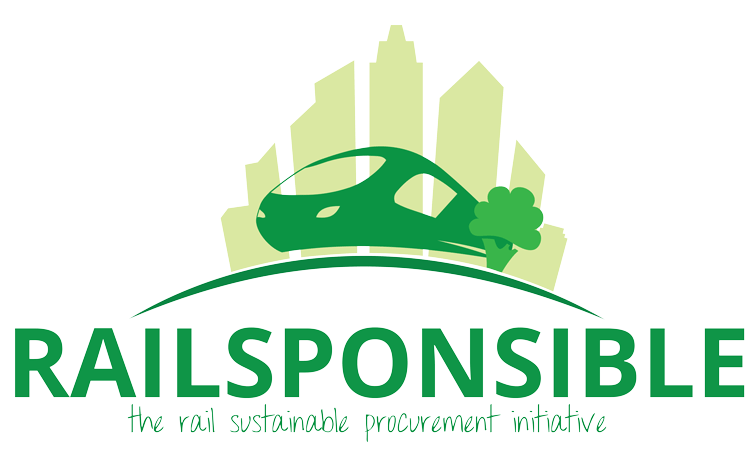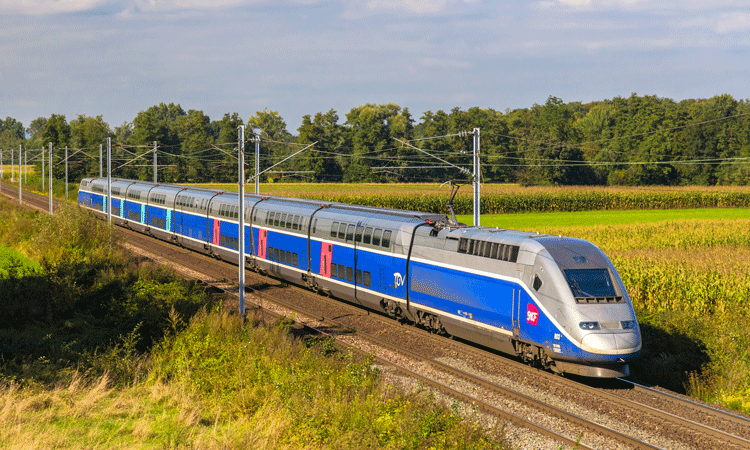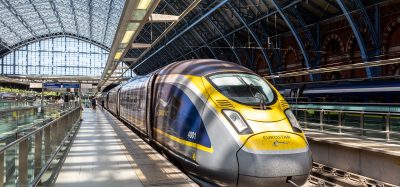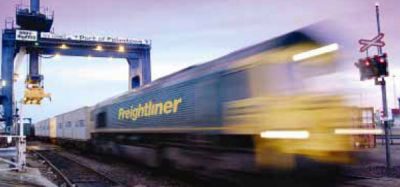Railsponsible: The rail sustainable procurement initiative
Posted: 26 July 2015 | Jeroen Wegkamp, Stefan Bürkle, Uwe Günther | No comments yet
In March 2015, Alstom, Bombardier, Deutsche Bahn, Knorr Bremse, Nederlandse Spoorwegen and SNCF came together in Utrecht to officially launch Railsponsible, a collaborative initiative aimed at improving sustainability practices throughout the railway industry supply chain. To understand how Railsponsible will help railway industry companies tackle the sustainable procurement challenges they face in the long run, we spoke to Uwe Günther, Jeroen Wegkamp and Stefan Bürkle, Chief Procurement Officers of Deutsche Bahn, Nederlandse Spoorwegen and SNCF, respectively.


Sustainability requirements are becoming a significant part of procurement decisions within the global railway industry. Railsponsible is a collective effort focused on improving sustainability practices in the supply chain and promoting greater transparency to meet increasing stakeholder expectations. The initiative also seeks to enable best-practice sharing among the participating companies about how to address key sustainability issues in the railway sector and build capabilities to address the issues.
Social, environmental and ethical issues are strongly linked to procurement risks and opportunities, and companies are increasingly willing to track their suppliers’ performance in these areas in order to improve their own risk management processes. To this end, Railsponsible members kicked-off a shared supplier assessment campaign in March 2015 using EcoVadis – a platform that helps companies monitor the sustainability performance of their suppliers.
Railsponsible is facilitated by BSR, a global not-for-profit organisation that works with more than 250 multinational companies to implement sustainability practices, and brings more than 20 years of expertise in facilitating collaborative sustainability initiatives.
What are the top sustainable procurement challenges for your company and the railway industry, and what solutions will Railsponsible bring to these challenges?
Günther: At Deutsche Bahn, our first challenge is understanding our whole supply chain and all the players involved, including Tier 2 suppliers. In addition, we need to better understand what the sustainability risks are across the entire supply chain to be able to address our priority challenges, and therefore we need our suppliers to be transparent on how they perform on social and environmental aspects.
Wegkamp: Nederlandse Spoorwegen’s focus points are energy consumption and waste reduction throughout the company. However, it would be very difficult to improve our sustainability performance as a single entity, given that we are very much dependent on the sustainability performance of our supply chain to achieve our own goals. We have a very broad base of suppliers and it is crucial that buyers in our industry develop a common language around how we approach sustainability issues in our procurement processes.
Bürkle: SNCF works with more than 30,000 suppliers – including more than 20,000 small and medium enterprises – so the challenge is huge. Internally we have been engaged in a voluntary and ambitious sustainability programmes for several years, which includes a gradual transformation of our purchasing strategies to incorporate environmental, social and societal criteria. Railsponsible is part of the solution to our challenges as it gives us the opportunity to reach many more providers and to engage with Tier 2 suppliers.


SNCF is a member of Railsponsible
What has motivated you to engage with your railway manufacturer suppliers, such as Alstom, Bombardier and Knorr Bremse, in a collaborative initiative about sustainable procurement? What benefits do you expect from such a collaboration?
Bürkle: Railway manufacturers are obviously key partners for us. They are the first link that we must mobilise to initiate a responsible purchasing process. By working together with other railway operators and with our manufacturers, we can have a greater impact and engage with a greater number of suppliers.
Günther: Railsponsible unites important players of the rail industry; fostering a common understanding of our sustainability challenges and committing to shared expectations that will have a sizeable impact for all.
Wegkamp: Sustainability is a topic where railway operators and railway manufacturers have to work together – it is a non-competitive issue by nature. Railsponsible will bring efficiency and effectiveness to our approach: efficiency because we will use a common assessment tool to evaluate our suppliers; effectiveness because the assessment will draw our attention to suppliers that need to improve their performance and for which we will have to define corrective action plans.
How do you envision Railsponsible to develop over the next two to three years, and what impacts do you hope that the initiative will achieve in the global railway supply chain?
Wegkamp: Our goal is to bring the sustainability performance of the railway supply chain to a structurally higher level. We have an obligation towards society and to our customers to make this happen and therefore we have to take action and take responsibility for this. We would like Railsponsible to promote successfully greater integration of sustainability considerations within the railway supply chain.
Günther: Railsponsible will hopefully attract other important players and become a widely accepted platform for sustainable practices within the rail industry. I do hope that in three years’ time transparency across our supply chain will have increased and that our suppliers’ sustainability performance will have improved.
Bürkle: Our ambition is for Railsponsible to become a reference for the rail industry and more widely. This means that key players in Europe and the rest of the world would have joined the initiative, that we would have assessed thousands of suppliers’ CSR performance and engaged with them in corrective action plans when needed, and that we would have moved forward collectively by sharing best practices.
Join Railsponsible
Railsponsible is open to all railway operators and companies across the railway industry value chain, along with key industry associations. For more information about the initiative, please visit www.railsponsible.org or email [email protected]
Uwe Günther has been Chief Procurement Officer at Deutsche Bahn AG (DB) since July 2014. He studied Electrical Engineering and Business Administration. Before joining DB in 2007, he was active in various procurement leadership positions in the aviation as well as in other industries. From 2011 to 2014 Uwe led the Infrastructure Procurement Department of DB.
Jeroen Wegkamp has been Chief Procurement Officer at Nederlandse Spoorwegen (NS – Dutch Railways) since September 2013 and holds master’s degrees in Chemical Engineering and Business Administration. Before joining NS in 2013, Jeroen held various finance and procurement related leadership positions within Essent-RWE, ultimately being responsible for the German and Dutch procurement activities. Before that he had a career as a Management Consultant and Interim Manager.
Stefan Bürkle is Chief Procurement Officer at SNCF. He joined SNCF Group in 2010 at the helm of the Geodis Purchasing department, when his former company was acquired by Geodis. He was named Purchasing Director for SNCF Group on 1 January 2013. His mission is to successfully carry out the Purchasing Transformation Programme, drive performance and efficiency, incorporate CSR into purchasing, and thereby contribute to building the new SNCF.







